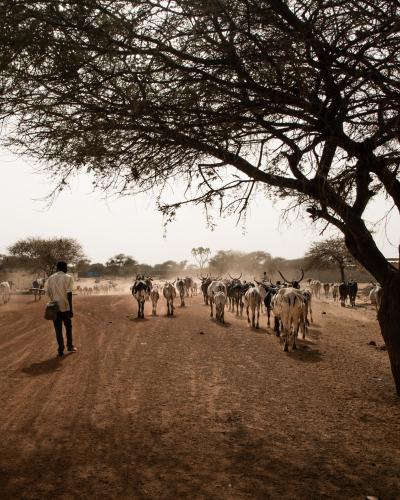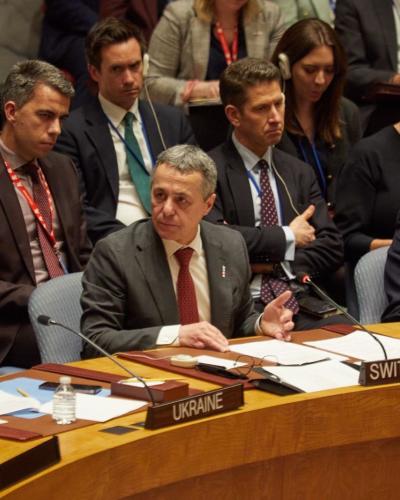The UN Security Council held an open debate, chaired by Guyana, on the link between climate change, food insecurity and armed conflict. "Addressing climate security" is one of the four thematic priorities defined by the Federal Council for Switzerland's membership of the Security Council. Switzerland, represented by Ambassador Alexandra Baumann, Head of the FDFA's Prosperity and Sustainability Division (PSD), emphasized the need for prevention in New York. "Conflict is the main cause of hunger, and climate change further destabilizes the situation," she emphasized. Acute food insecurity in the world has increased massively over the past decade. Despite the targets set by the 2030 Agenda, almost 800 million people still face chronic hunger.
At the Security Council, Switzerland presented solutions aimed in particular at preventing climate-related risks and reducing tensions. In recent years, early warning systems have been developed for food insecurity, conflicts and extreme climatic events. At present, these systems mostly operate separately. It is essential that they be linked to avoid blind spots in conflict prevention. The resulting data must then be used for targeted, preventive action. In this way, for example, the creation of sustainable food systems can be ensured in the long term. Switzerland is also committed to this at the bilateral level within the framework of its international cooperation.
For this to succeed, coordinated cooperation between environmental, peace and humanitarian actors is necessary. In addition to the UN Security Council, these include the entire UN system, regional organizations such as the African Union, local institutions, as well as the scientific community and the private sector. Switzerland actively promotes dialogue between these actors and recently organized dialogues in Addis Ababa on the impact of climate change and conflict on food security.
The result of the vicious circle of conflict, food insecurity and the consequences of climate change is the same in many conflict zones around the world: more instability, more insecurity and more suffering among civilians. "In order to find context-specific responses, the Council must take into account the impact of climate change on peace and security," emphasized Alexandra Baumann in New York. Switzerland will continue to address the security and peace policy implications of climate change in the Security Council, identify possible solutions and contribute to building consensus among Council members.
Statement by Switzerland on climate change and food security, UN Security Council, 13.02.2024




